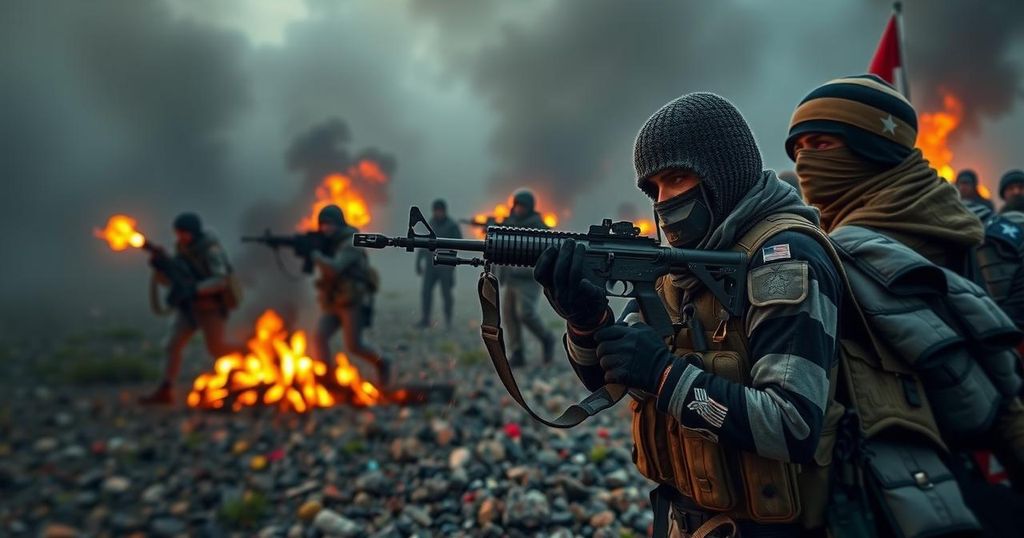Shifts in Power Dynamics as Syrian Rebels Gain Ground Amid Weakened Allies

A recent rebel offensive in Syria has resulted in significant territorial gains, particularly in Aleppo, amid weakened support for President al-Assad from his allies. Iran, Hezbollah, and Russia face their own challenges, allowing opposition forces to capitalize on vulnerabilities. This sudden shift in the civil war highlights the evolving geopolitical situation around Syria as Mr. al-Assad’s position grows increasingly tenuous.
Recent developments in Syria have highlighted a significant shift in the balance of power amidst the ongoing civil conflict. With support dwindling from key allies, Iran, Hezbollah, and Russia, Syrian rebel forces have seized the initiative, launching a surprise offensive that has allowed them to capture substantial territory, including much of Aleppo. Since the onset of this protracted conflict 13 years ago, President Bashar al-Assad has relied heavily on these allies to maintain control against various opposition groups, but current geopolitical realities have created favorable conditions for the rebel factions.
The current scenario unfolded as Iran suffers setbacks from Israeli airstrikes and domestic challenges, while Hezbollah faces a strained position following a prolonged conflict with Israel. Moreover, Russia’s attention is diverted by its ongoing war in Ukraine, limiting its military support to al-Assad’s regime. Analysts suggest that this weakened coalition has left Mr. al-Assad increasingly isolated, prompting timely action from the rebels. The unexpected speed of their advancement suggests that the rebel groups had prepared strategically for such an opportunity.
The shift in power dynamics can also be attributed to President al-Assad’s failure to achieve tangible economic improvement or restore governance across recaptured territories. Observers indicate that his military’s weakening resolve is evident, as conscripted soldiers abandon their posts in the wake of the rebel offensive. Additionally, a thaw in Turkey’s position, traditionally scrutinizing rebel initiatives against the Syrian state, indicates a shift that has enabled more decisive action from groups like Hayat Tahrir al-Sham.
An important aspect to consider is the geopolitical landscape surrounding Syria, where broader regional conflicts have reshaped alliances and priorities. The rebels acted with urgency amidst fears that their success could be short-lived if Mr. al-Assad’s allies regrouped. Therefore, not only internal conditions but external factors surrounding the Syrian conflict have significantly influenced the outcomes of these military maneuvers.
The Syrian civil war has spanned over a decade, beginning with protests against Mr. al-Assad’s regime and escalating into a multifaceted conflict involving various domestic and international actors. Historically, Iran, Hezbollah, and Russia have played pivotal roles in supporting al-Assad’s government, contributing military expertise, manpower, and aerial support. However, recent crises affecting these nations and their conflicting engagements in other regions have led to decreased support for the Syrian government. Consequently, opposition forces, especially amidst the chaos following significant geopolitical shifts, have capitalized on these vulnerabilities to gain ground in the civil war.
The recent successes of Syrian rebel forces underscore a pivotal change in the civil war that could reshape the region’s future stability. With key allies’ diminished capacity to assist, Mr. al-Assad faces new challenges that may prove insurmountable. The situation is fluid, influenced by both local conditions and the international geopolitical landscape, suggesting that future engagements may be equally pivotal. The developments warrant close observation as they could lead to further shifts in power dynamics within Syria and beyond.
Original Source: www.nytimes.com








